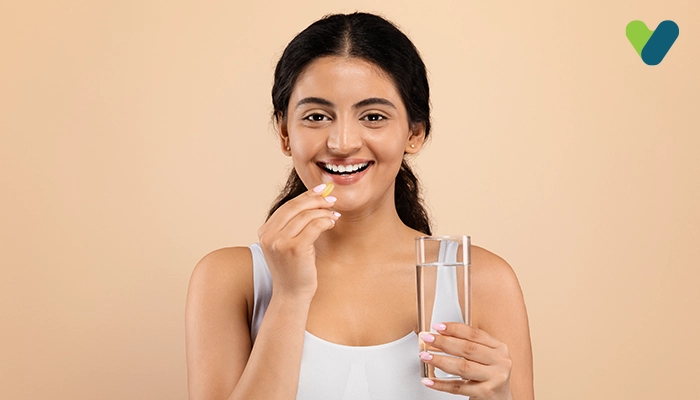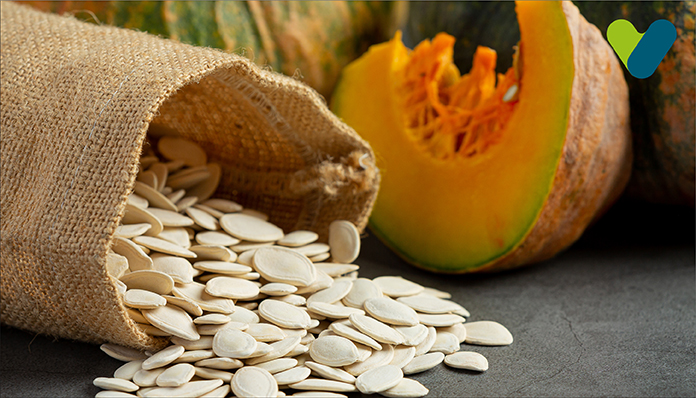The term Vitamin is used a lot these days and begs a fundamental question, should you grab the next supplement that you find?
There is quite a bit of information that you need access to before taking that decision. Let’s start with the basics.
What Are Vitamins?
Vitamins are nutrients that your body needs for its proper functioning and keeping you healthy. However, our body usually does not produce vitamins and if it does, it is in smaller quantities. Thus, we must rely on food to get most of our vitamin intake.Vitamins along with minerals, ensure that your body is in top-notch condition always. You must include vitamins for healthy life and here are some of the benefits.
- A few vitamins help your body fight infections
- A few vitamins help you keep your nerves healthy
- Some of them aid in extracting energy from food
- Some vitamins help in the clotting of blood
2 Different Types of Vitamin
Here are the two major categories of vitamins and what they mean.- Water-soluble vitamins
These vitamins do not stay in the body for a longer duration and usually pass through the urine. Thus, we need more supply of water-soluble vitamins as compared to fat-soluble ones.
- Fat-soluble vitamins
These are the vitamins that our body stores in the liver and fatty tissues and their reserves can stay for months in some cases. Vitamin a, vitamin d, vitamin e, and vitamin k are examples of fat-soluble vitamins. Vitamin c is a good example of the same.
Now that we know what a vitamin is and the different types of vitamins, knowing the role of each vitamin and the required quantity daily is the next logical step.Vitamin A
Vitamin A in your body essentially boosts the health of your eyes and skin and improves your immunity as well. Since the vitamin is fat-soluble, one needs to be careful with the dosage and not overconsume it. Vitamin A food sources include broccoli, carrots, spinach, mangoes, papaya, etc. to ensure healthy levels of vitamin A in the body.Vitamin B
You can think of Vitamin B as a broader category, as there are 8 vitamin b’s in total. The 8 types are:- Vitamin B1 or otherwise known as thiamin
- Vitamin B2 or otherwise known as riboflavin
- Vitamin B3 or otherwise known as niacin
- Vitamin B6
- Vitamin B7 or otherwise known as Biotin
- Vitamin B12
- Pantothenic acid,
- Folic acid and folate.
Common examples include cereals, whole grains, eggs, cheese, nuts, seeds, bananas, watermelon, etc. If you are looking for food rich in vitamin b12, they naturally occur in animal products. Good sources for vitamin b12 include animal kidneys, liver, clams, tuna, sardines, dairy products, etc.
Vitamin C
Vitamin C food can boost the immunity of the body and act as an antioxidant. You can refer to the table below for vitamin c dose for women daily. The average intake for women stands at about 75 mg a day.Vitamin D
The consumption of vitamin d ensures that your bone health and immunity are always in their prime. According to new research, vitamin d consumption can boost fertility as well.Vitamin d dose for women stands at about 15 mg per day. And you can consume the following food rich in vitamin d. Salmon, tuna, egg yolk, mushrooms, orange juice, oatmeal, and soy milk are excellent sources of vitamin d. The same sources also offer vitamin d3 to your diet.
Vitamin E
Vitamin E is majorly known for its antioxidant properties, which primarily help with preventing oxidative stress. Vitamin e food sources include almonds, kiwis, eggs, green leafy vegetables, nuts, etc. Vitamin e dose for women is typically around 15 mg depending on the age.Here are the recommended levels for daily vitamins consumption for women.
| Age Group/Category | Vitamin A | Vitamin D | Vitamin E | Vitamin K | Vitamin C |
| 9-13 years | 600 mcg | 15 mcg | 11 mg | 60 mcg | 45 mg |
| 14-18 years | 700 mcg | 15 mcg | 15 mg | 75 mcg | 65 mg |
| 19-50 years | 700 mcg | 15 mcg | 15 mg | 90 mcg | 75 mg |
| 51+ years | 700 mcg | 15 mcg and 20 mcg for women above 70 years | 15 mg | 90 mcg | 75 mg |
| Pregnant | 750 mcg (less than 18 years old) 770 mcg (more than 18 years old) | 15 mcg | 15 mg | 75 mcg (less than 18 years old) 90 mcg (more than 18 years old) | 85 mg |
| Breastfeeding | 1200 mcg (less than 18 years old) 1300 mcg (more than 18 years old) | 15 mcg | 19 mg | 75 mcg (less than 18 years old) 90 mcg (more than 18 years old) | 120 mg |
| Age Group/Category | B1 | B2 | B3 | B5 | B6 | B7 | B9 | B12 |
| 9-13 years | 0.9 mg | 0.9 mg | 12 mg | 4 mg | 1 mg | 20 mcg | 300 mcg | 1.8 mcg |
| 14-18 years | 1 mg | 1 mg | 14 mg | 5 mg | 1.2 mg | 25 mcg | 400 mcg | 2.4 mcg |
| 19-50 years | 1.1 mg | 1.1 mg | 14 mg | 5 mg | 1.3 mg | 30 mcg | 400 mcg | 2.4 mcg |
| 51+ years | 1.1 mg | 1.1 mg | 14 mg | 5 mg | 1.5 mg | 30 mcg | 400 mcg | 2.4 mcg |
| Pregnant | 1.4 mg | 1.4 mg | 18 mg | 6 mg | 1.9 mg | 30 mcg | 600 mcg | 2.6 mcg |
| Breastfeeding | 1.4 mg | 1.6 mg | 17 mg | 7 mg | 2 mg | 35 mcg | 500 mcg | 2.8 mcg |
There can be a few vitamins for health that you cannot consume in their naturally occurring state. For instance, if you are a vegetarian, you cannot consume animal products for vitamin b12. In such cases, you can consume supplements for your daily vitamin intake.
However, it must be done under the supervision of a physician. As much as they are helpful, consuming too much vitamin daily is also not recommended.


